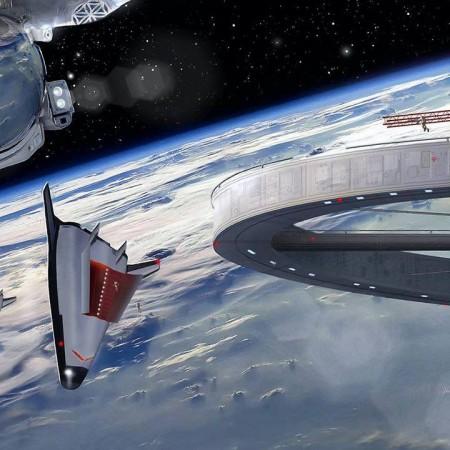
A nanosat dubbed 'Asgardia', which is about the size of a bread loaf, was launched from NASA's Wallops Flight Facility in Virginia, the United States, to the International Space Station (ISS) on November 12, 2017.
ALSO READ: Mysterious UFO sighted hovering over American Navy Base
Here are the top things to know about Asgardia:
1. Asgardia is named after the Norse mythological city of the skies. It is popularly known as the 'Space Kingdom of Asgardia'. It has been launched with the aim to access outer space free of the control of the existing nations and to be recognised as a 'nation space'.
ALSO READ: UFO hunter reveals TRUTH behind bizarre 'Black Triangles' spotted in UK [VIDEO]
2. Dr Igor Ashurbeyli , the founder of Aerospace International Research Centre (AIRC), announced the proposal about operating world's first independent nation in outer space on October 12, 2016. A cohort of astronomers from the AIRC had announced the first plans for the 'space nation' in 1957.
3. Launched aboard the OA-8 Antares-Cygnus -- a NASA commercial cargo vehicle -- it will remain there till it get deployed to low-Earth orbit in three weeks.

ALSO READ: Man from Arizona gets rid of blocked nose by masturbating!
4. Asgardia-1 comprises of data of half a terabyte of data including the space nation's constitution and other national documents as well as family photographs, coat of arms and constitution.
5. The sign up for Asgardia is free and around 114,000 people have signed up for it already. Asgardia-1 comprises of a nation within itself and is creating its own legal framework, flag and other symbols on nationhood.
ALSO READ: Man wears heroin-filled condom to dodge security at Chennai Airport
6. This pioneering nanosat fulfils the necessary condition for admission to the UN and its self-designed constitution has already been accepted.
7. According to Ashurbeyli, the main mission of the project is to provide a "peaceful society", offer easier access to space technologies, and protect Earth from space threats, such as asteroids and man-made debris in space, according CNN report.
ALSO READ: Comet C/2012 K1 observed during it's first pass through Solar System using NASA's SOFIA
Though the citizens will remain on Earth, Asgardia-1 would get them one step closer to space.
Watch the video of Asgardia nanosat launch:














